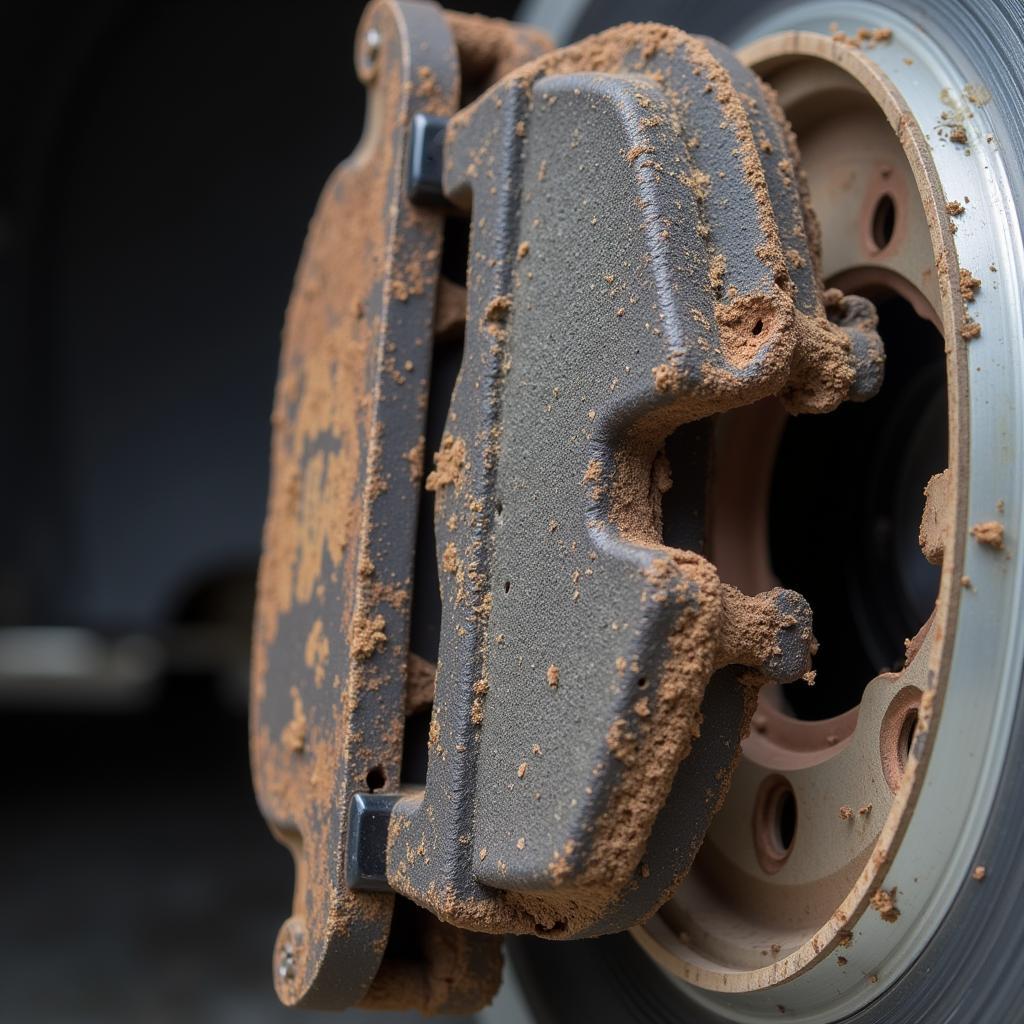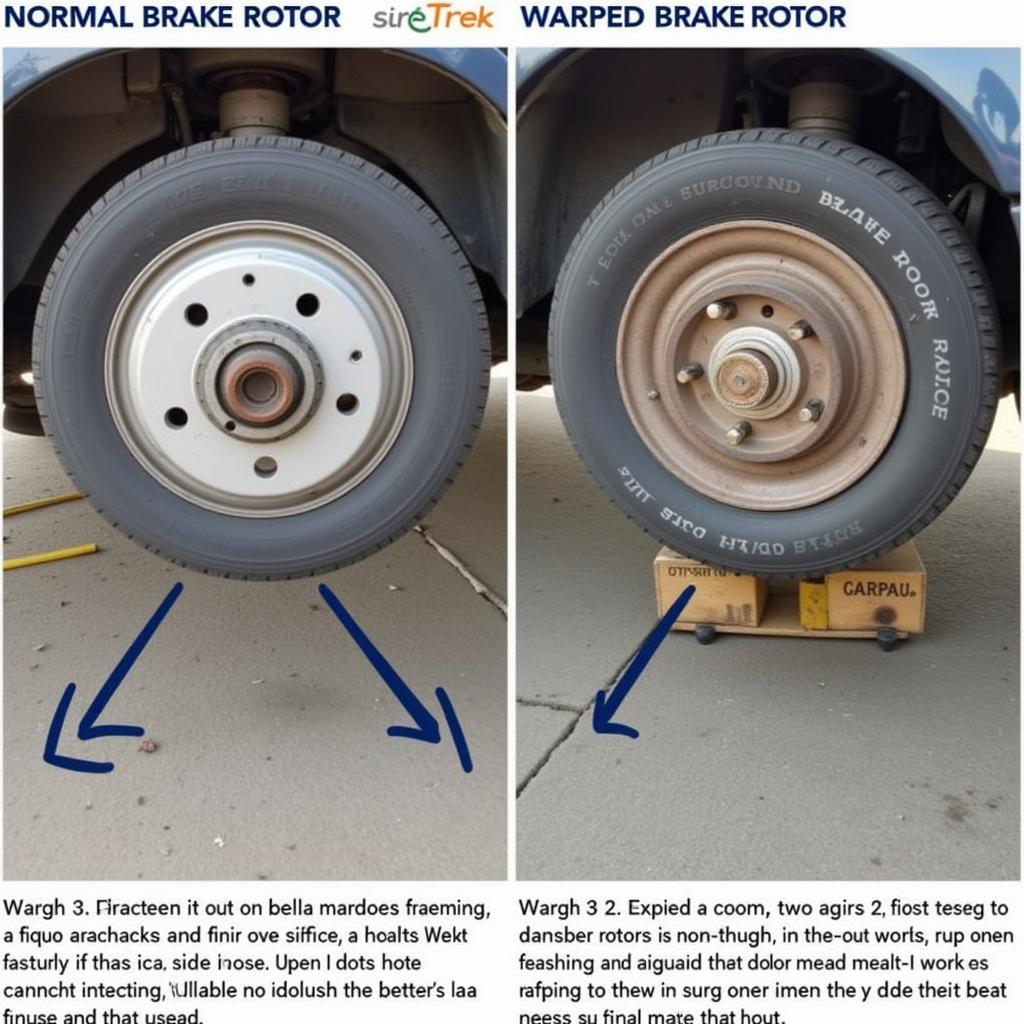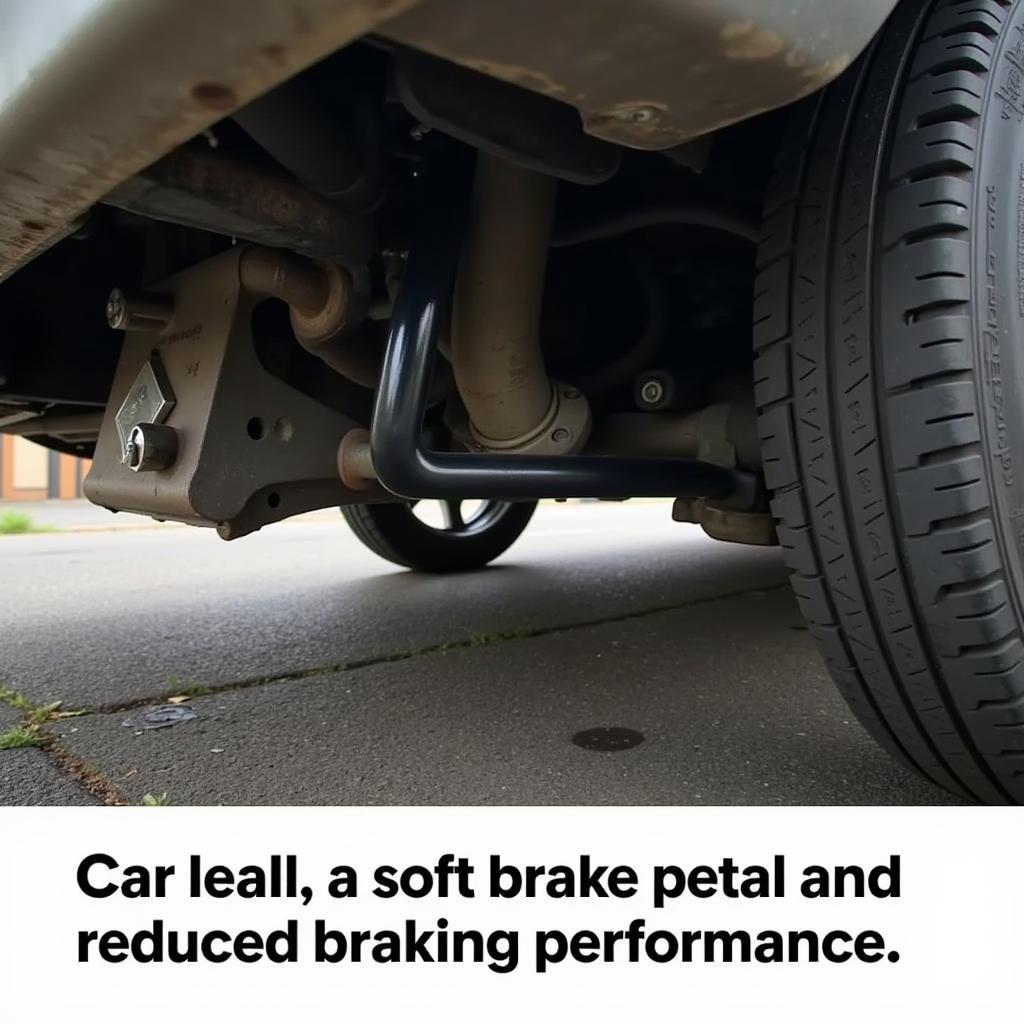Your car’s braking system is one of its most crucial safety features. Recognizing the warning signs of worn brakes is essential to ensure your safety and the well-being of your passengers and other road users. This article delves into the telltale signs that indicate the need for new brakes, empowering you to address this critical aspect of vehicle maintenance proactively.
How to Tell if Your Brakes are Going Bad
Identifying brake problems early can save you time, money, and potential danger on the road. Here are some common warning signs:
1. Squealing or Screeching Sounds
One of the most noticeable signs of brake wear is a high-pitched squealing or screeching sound when you apply the brakes. This noise often occurs due to the wear indicator, a small metal tab built into brake pads, coming into contact with the rotor. Don’t ignore this sound, as it signals it’s time for a brake inspection.
 Brake Pad Wear Indicator
Brake Pad Wear Indicator
2. Grinding Noises When Braking
A grinding noise when braking is more serious than squealing. It often means your brake pads are completely worn down, and the metal backing plate is scraping against the rotor. This can cause significant damage to your rotors, leading to costly repairs. If you hear grinding, get your car checked by a mechanic immediately.
3. Vibrating Brake Pedal
If you feel a pulsing or vibrating sensation in the brake pedal when you apply the brakes, it could be a sign of warped rotors. Rotors are large metal discs that the brake pads clamp down on to stop the car. Over time, rotors can become unevenly worn or warped due to excessive heat.
 Warped Brake Rotor
Warped Brake Rotor
4. Car Pulling to One Side
If your car veers to one side when you brake, it could indicate a problem with your brakes, such as a stuck caliper or uneven brake pad wear. This can be dangerous, especially at higher speeds, as it reduces your control over the vehicle.
5. Burning Smell While Driving
A strong, acrid odor similar to burning rubber or plastic, especially after prolonged or heavy braking, might signal overheated brakes. This could be due to stuck calipers or riding the brakes for an extended period.
6. Soft or Spongy Brake Pedal
A brake pedal that feels soft or spongy and requires more pressure than usual to stop the car could point towards a problem with your brake fluid or air in the brake lines. This issue needs to be addressed promptly, as it can significantly reduce your braking power.
 Brake Fluid Leak
Brake Fluid Leak
7. Brake Warning Light Illuminates
Most modern cars are equipped with a brake warning light on the dashboard. If this light comes on, it’s a clear indication that there’s an issue with your braking system that requires immediate attention.
What to Do if You Notice Brake Problems
If you experience any of the warning signs mentioned above, it’s crucial to take your car to a qualified mechanic immediately. Driving with worn brakes is dangerous and can lead to accidents.
Expert Insight
According to automotive engineer and brake specialist, David Miller, “Many car owners underestimate the importance of regular brake inspections. Brake pads and other components are subject to wear and tear and should be inspected at least once a year or every 10,000 miles.”
Miller further explains, “Ignoring the early warning signs of brake problems can lead to more extensive damage and significantly higher repair costs. It’s always best to address brake issues proactively.”
Conclusion
Your car’s brakes are vital for your safety and the safety of others on the road. By being aware of the warning signs that you need new brakes, you can take timely action to prevent accidents and ensure optimal vehicle performance. Regular maintenance and prompt attention to any brake issues will help keep you safe and your car running smoothly for years to come.
Don’t wait until it’s too late; address brake problems as soon as they arise. Remember, a little preventative maintenance can go a long way in ensuring your safety and avoiding costly repairs down the road.
